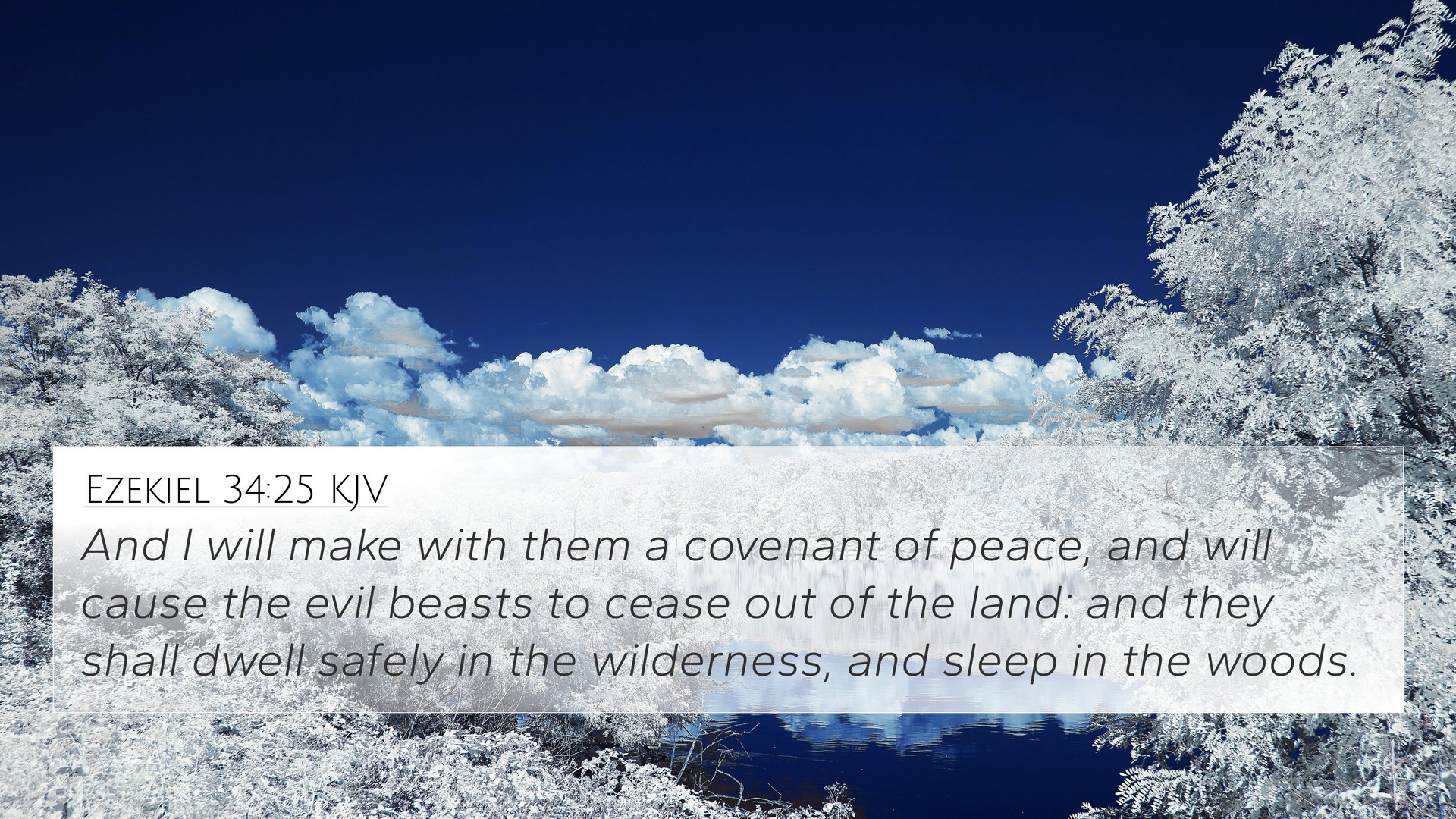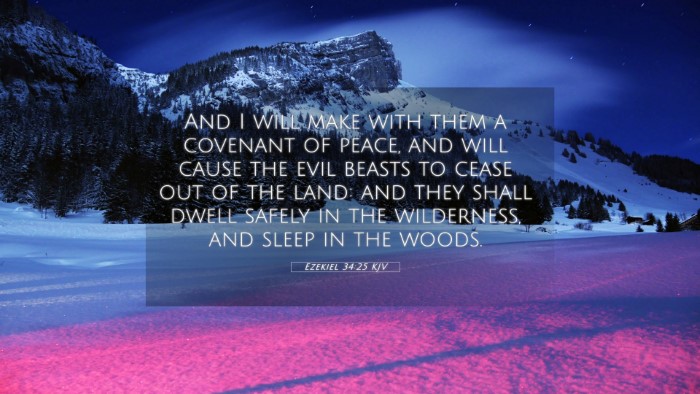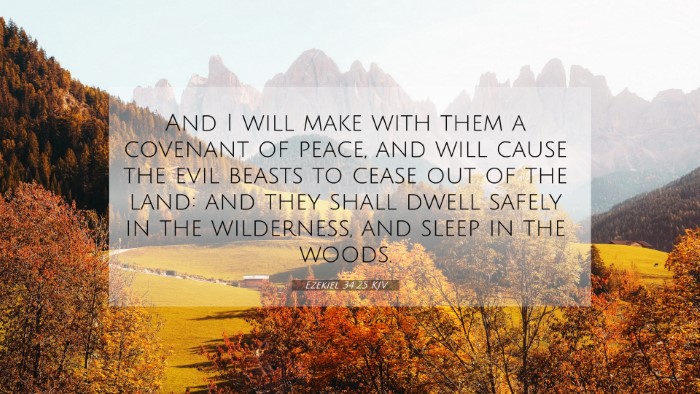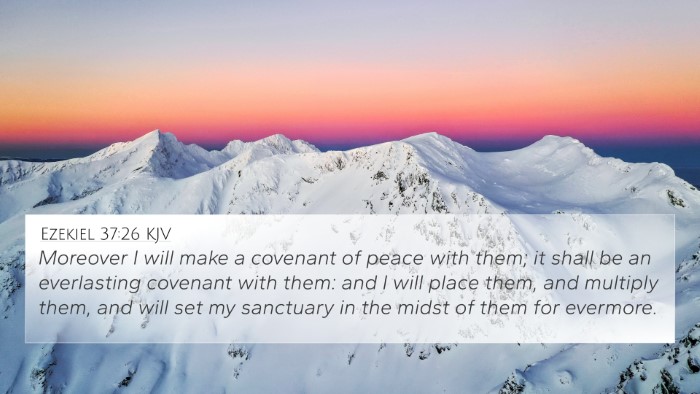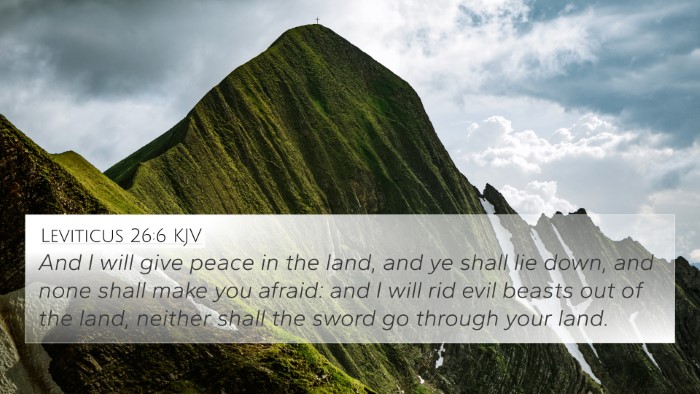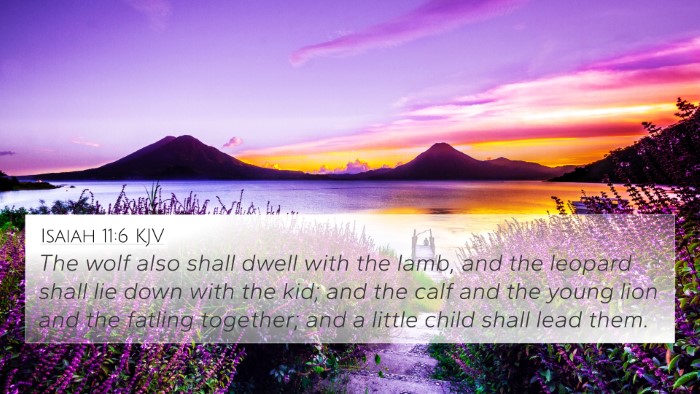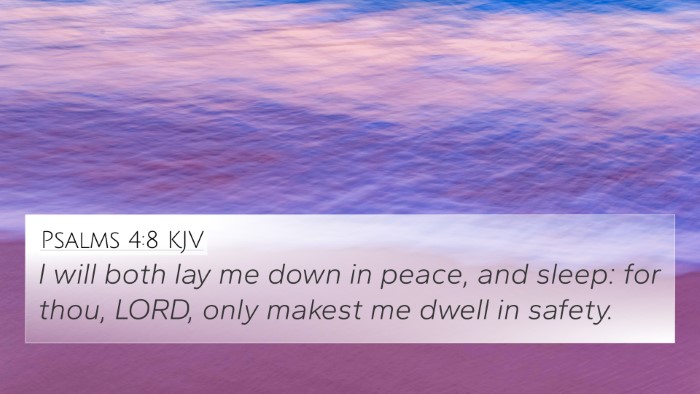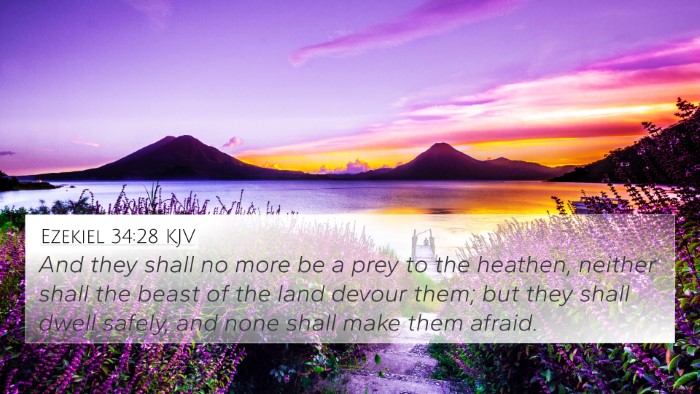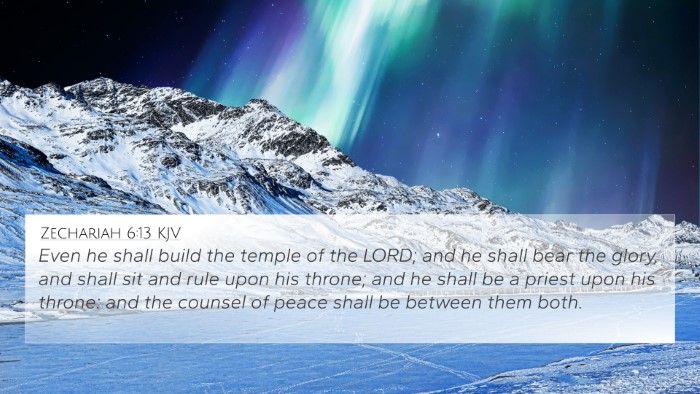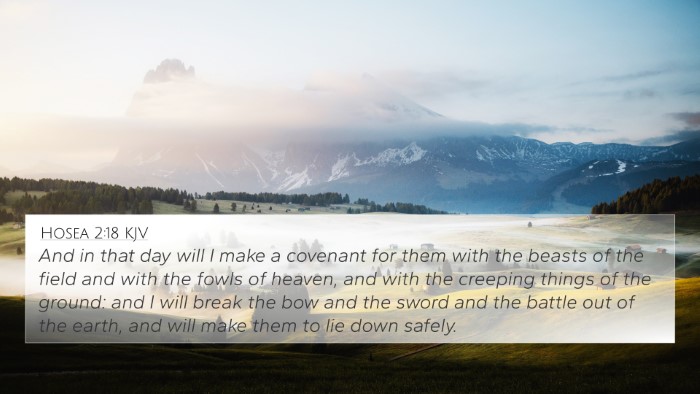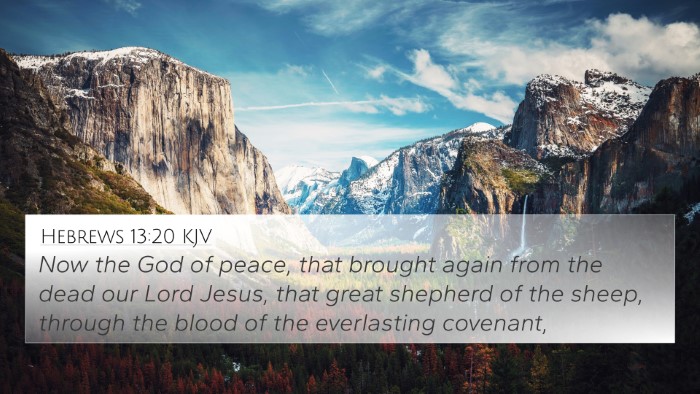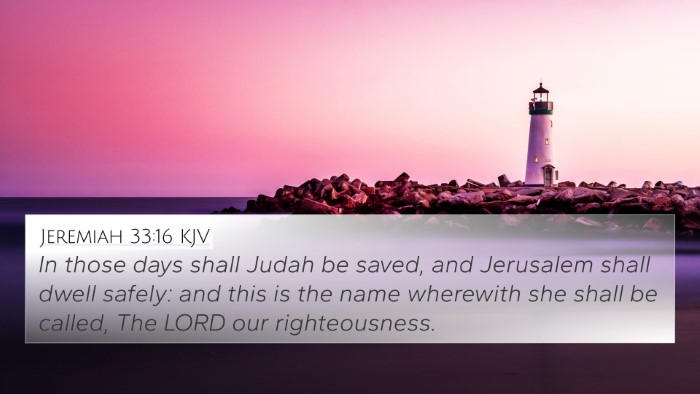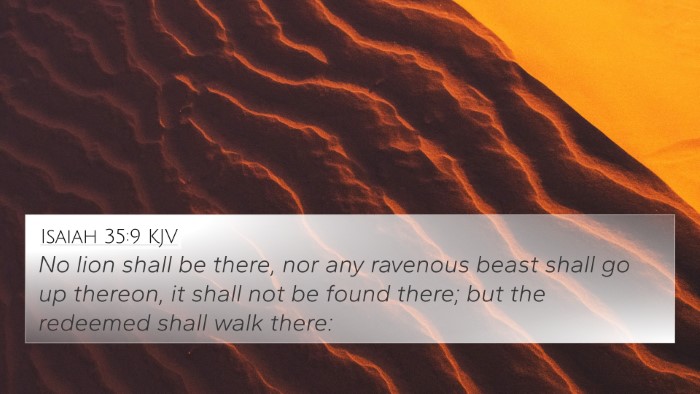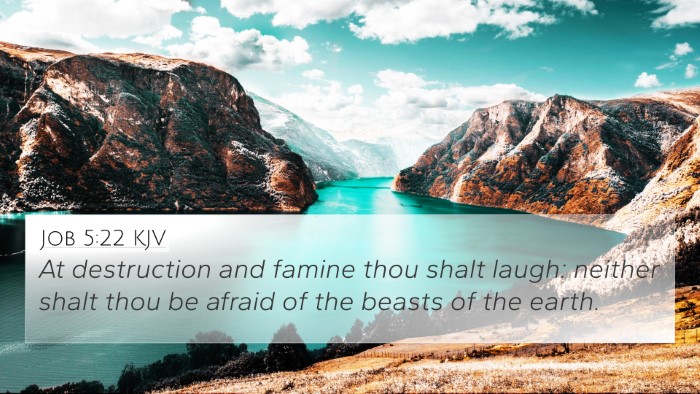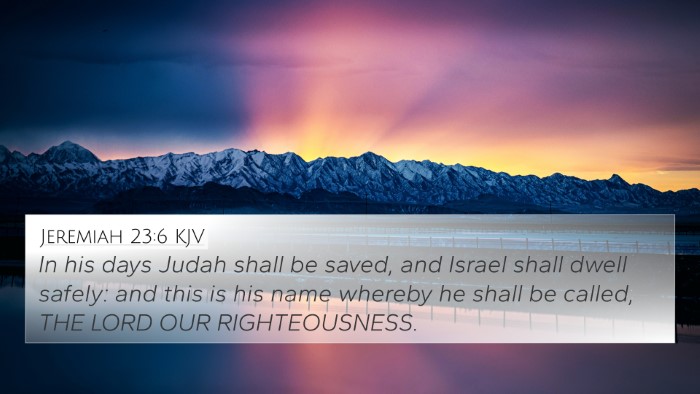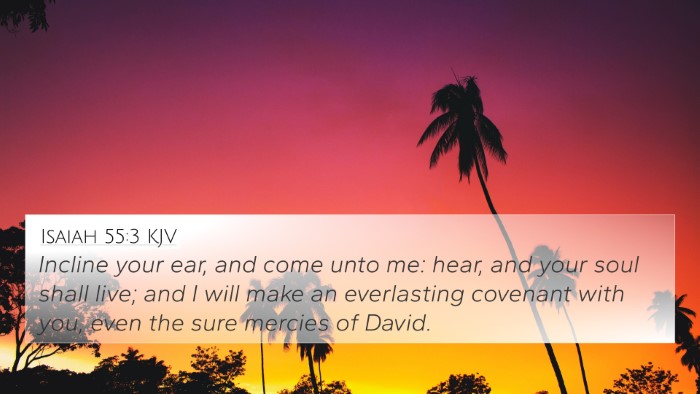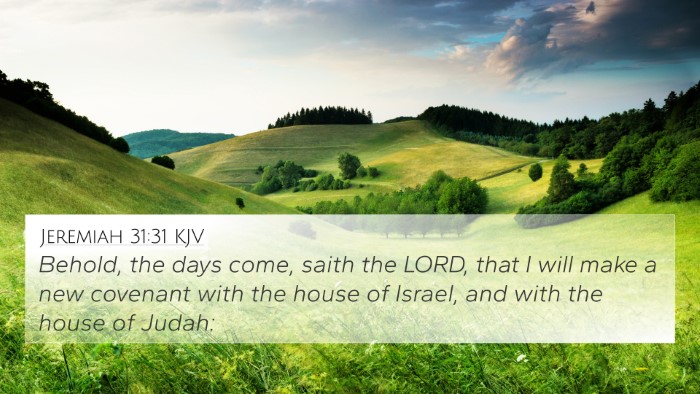Ezekiel 34:25 - Meaning and Interpretation
Ezekiel 34:25 states, "And I will make with them a covenant of peace, and will cause the evil beasts to cease out of the land: and they shall dwell safely in the wilderness, and sleep in the woods." This verse conveys God's promise of peace and security to His people, emphasizing themes of protection, covenant, and restoration.
Contextual Background
This passage occurs in the context of Ezekiel’s prophecy concerning Israel’s restoration. Following a period of exile and turmoil, God promises to gather His scattered people and establish a new covenant with them, offering protection from enemies represented by "evil beasts."
Commentary Insights
-
Matthew Henry:
Matthew Henry highlights the significance of the "covenant of peace," noting that it indicates God’s willingness to establish tranquility among His people. He explains that this peace extends beyond mere absence of conflict, encompassing comprehensive well-being and prosperity.
-
Albert Barnes:
Barnes suggests that the "evil beasts" symbolize hostile nations and threats to Israel. The promise to cease them signifies divine protection, ensuring that God's people can dwell securely. Barnes emphasizes that this reflects God's commitment to safeguard His flock against all dangers.
-
Adam Clarke:
Clarke remarks on the imagery of "dwelling safely in the wilderness," interpreting it as a metaphor for spiritual and physical restoration. He asserts that the wilderness represents desolation transformed into a place of refuge, highlighting God’s ability to bring new life from barrenness.
Key Themes
- Covenant: This verse underscores God's unwavering commitment to His people through the establishment of a new covenant, reaffirming His role as the Shepherd.
- Peace and Security: The promise of peace signifies a future free from threats, where His people can rest in safety.
- Protection from Evil: The removal of evil beasts symbolizes the eradication of all forces that endanger the community of faith.
- Restoration and Renewal: The imagery of dwelling and sleeping reflects a transformative period of renewal for the Israelites.
Cross-References
This verse connects with several other scripture passages that enhance its meaning:
- Jeremiah 31:33: "But this shall be the covenant that I will make with the house of Israel..." - Highlights God's promise of a new covenant.
- Psalms 23:1-3: "The Lord is my shepherd; I shall not want." - Connects to the theme of divine shepherding and care.
- Isaiah 11:6: "The wolf also shall dwell with the lamb..." - Illustrates peace among former enemies.
- Ezekiel 37:26: "Moreover I will make a covenant of peace with them..." - Reinforces the theme of covenant in Israel's restoration.
- Revelation 21:4: "And God shall wipe away all tears from their eyes..." - A vision of ultimate peace and security.
- Luke 1:79: "To give light to them that sit in darkness..." - Emphasizes God's role in providing safety and hope.
- Micah 5:4: "And he shall stand and feed in the strength of the Lord..." - Points to the Messianic promise of security and guidance.
Conclusion
Ezekiel 34:25 conveys God's profound promise of peace and restoration. Through the insights of various biblical commentators, we understand the rich implications of this covenantal promise as it relates to the broader narrative of God's redemptive plans.
For those studying scripture, understanding such connections through cross-referencing enhances the comprehension of Biblical texts, allowing individuals to grasp the interconnectedness found within the Scriptures.
In utilizing tools for Bible cross-referencing, like concordances and study guides, readers can explore these thematic connections deeply, gaining a holistic understanding of God's promises throughout the Bible.
